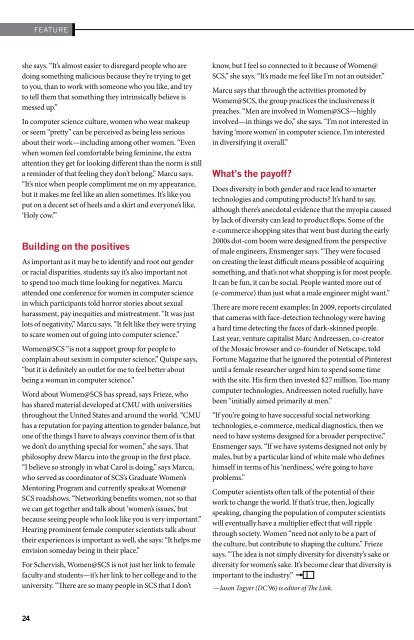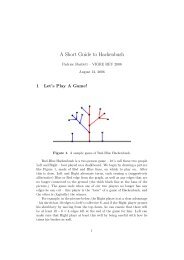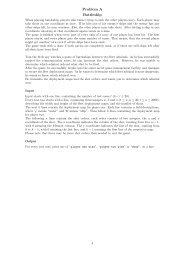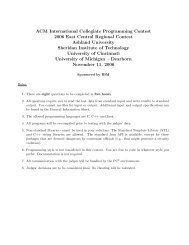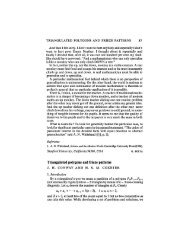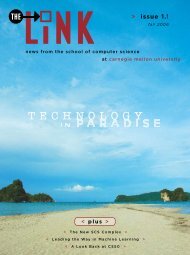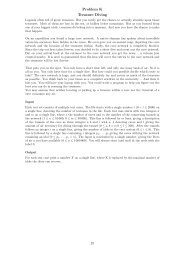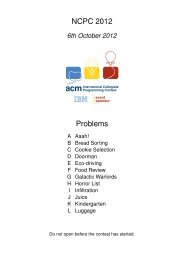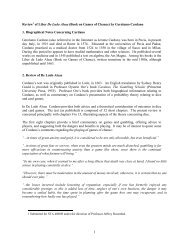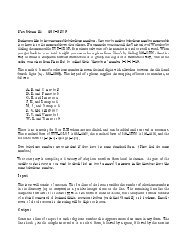Download now (1.3MB, PDF reader required) - Link home page
Download now (1.3MB, PDF reader required) - Link home page
Download now (1.3MB, PDF reader required) - Link home page
Create successful ePaper yourself
Turn your PDF publications into a flip-book with our unique Google optimized e-Paper software.
FEATURE<br />
she says. “It’s almost easier to disregard people who are<br />
doing something malicious because they’re trying to get<br />
to you, than to work with someone who you like, and try<br />
to tell them that something they intrinsically believe is<br />
messed up.”<br />
In computer science culture, women who wear makeup<br />
or seem “pretty” can be perceived as being less serious<br />
about their work—including among other women. “Even<br />
when women feel comfortable being feminine, the extra<br />
attention they get for looking different than the norm is still<br />
a reminder of that feeling they don’t belong,” Marcu says.<br />
“It’s nice when people compliment me on my appearance,<br />
but it makes me feel like an alien sometimes. It’s like you<br />
put on a decent set of heels and a skirt and everyone’s like,<br />
‘Holy cow.’”<br />
building on the positives<br />
As important as it may be to identify and root out gender<br />
or racial disparities, students say it’s also important not<br />
to spend too much time looking for negatives. Marcu<br />
attended one conference for women in computer science<br />
in which participants told horror stories about sexual<br />
harassment, pay inequities and mistreatment. “It was just<br />
lots of negativity,” Marcu says. “It felt like they were trying<br />
to scare women out of going into computer science.”<br />
Women@SCS “is not a support group for people to<br />
complain about sexism in computer science,” Quispe says,<br />
“but it is definitely an outlet for me to feel better about<br />
being a woman in computer science.”<br />
Word about Women@SCS has spread, says Frieze, who<br />
has shared material developed at CMU with universities<br />
throughout the United States and around the world. “CMU<br />
has a reputation for paying attention to gender balance, but<br />
one of the things I have to always convince them of is that<br />
we don’t do anything special for women,” she says. That<br />
philosophy drew Marcu into the group in the first place.<br />
“I believe so strongly in what Carol is doing,” says Marcu,<br />
who served as coordinator of SCS’s Graduate Women’s<br />
Mentoring Program and currently speaks at Women@<br />
SCS roadshows. “Networking benefits women, not so that<br />
we can get together and talk about ‘women’s issues,’ but<br />
because seeing people who look like you is very important.”<br />
Hearing prominent female computer scientists talk about<br />
their experiences is important as well, she says: “It helps me<br />
envision someday being in their place.”<br />
For Schervish, Women@SCS is not just her link to female<br />
faculty and students—it’s her link to her college and to the<br />
university. “There are so many people in SCS that I don’t<br />
k<strong>now</strong>, but I feel so connected to it because of Women@<br />
SCS,” she says. “It’s made me feel like I’m not an outsider.”<br />
Marcu says that through the activities promoted by<br />
Women@SCS, the group practices the inclusiveness it<br />
preaches. “Men are involved in Women@SCS—highly<br />
involved—in things we do,” she says. “I’m not interested in<br />
having ‘more women’ in computer science, I’m interested<br />
in diversifying it overall.”<br />
What’s the payoff<br />
Does diversity in both gender and race lead to smarter<br />
technologies and computing products It’s hard to say,<br />
although there’s anecdotal evidence that the myopia caused<br />
by lack of diversity can lead to product flops. Some of the<br />
e-commerce shopping sites that went bust during the early<br />
2000s dot-com boom were designed from the perspective<br />
of male engineers, Ensmenger says. “They were focused<br />
on creating the least difficult means possible of acquiring<br />
something, and that’s not what shopping is for most people.<br />
It can be fun, it can be social. People wanted more out of<br />
(e-commerce) than just what a male engineer might want.”<br />
There are more recent examples: In 2009, reports circulated<br />
that cameras with face-detection technology were having<br />
a hard time detecting the faces of dark-skinned people.<br />
Last year, venture capitalist Marc Andreessen, co-creator<br />
of the Mosaic browser and co-founder of Netscape, told<br />
Fortune Magazine that he ignored the potential of Pinterest<br />
until a female researcher urged him to spend some time<br />
with the site. His firm then invested $27 million. Too many<br />
computer technologies, Andreessen noted ruefully, have<br />
been “initially aimed primarily at men.”<br />
“If you’re going to have successful social networking<br />
technologies, e-commerce, medical diagnostics, then we<br />
need to have systems designed for a broader perspective,”<br />
Ensmenger says. “If we have systems designed not only by<br />
males, but by a particular kind of white male who defines<br />
himself in terms of his ‘nerdiness,’ we’re going to have<br />
problems.”<br />
Computer scientists often talk of the potential of their<br />
work to change the world. If that’s true, then, logically<br />
speaking, changing the population of computer scientists<br />
will eventually have a multiplier effect that will ripple<br />
through society. Women “need not only to be a part of<br />
the culture, but contribute to shaping the culture,” Frieze<br />
says. “The idea is not simply diversity for diversity’s sake or<br />
diversity for women’s sake. It’s become clear that diversity is<br />
important to the industry.”<br />
—Jason Togyer (DC’96) is editor of The <strong>Link</strong>.<br />
24


